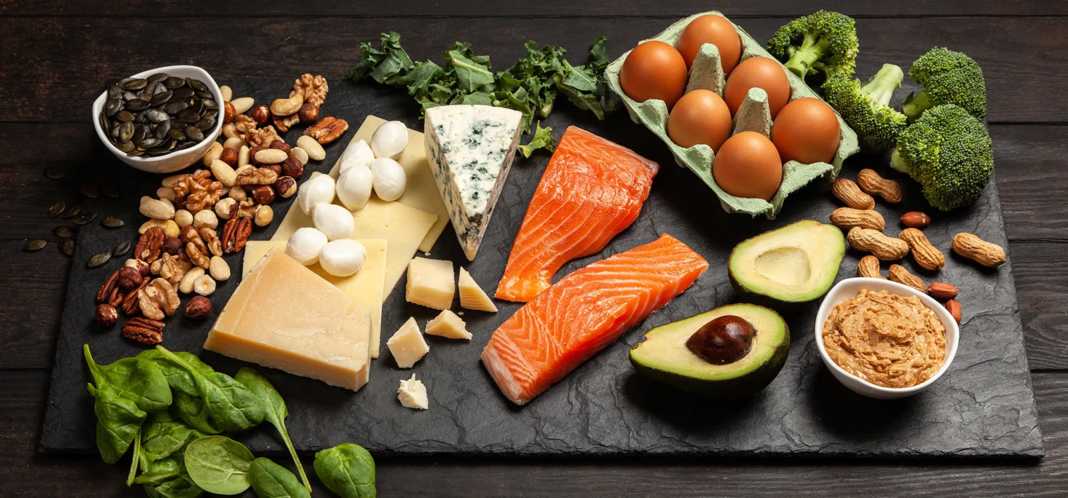Maintaining a strong and healthy body doesn’t happen overnight. It requires consistent effort, and one of the most important steps is paying attention to what you eat. Foods are not just sources of energy; they provide the essential nutrients that support muscles, bones, immunity, and overall health. By incorporating the right foods into your daily diet, you can build a strong, resilient body and feel more energetic every day.
In this article, we’ll explore some of the best foods that keep your body strong, how they work, and tips to include them in your meals.
1. Lean Proteins: Building Blocks of Strength
Proteins are essential for repairing tissues, building muscles, and keeping your body strong. Lean protein sources are ideal because they provide essential amino acids without extra saturated fats.
Best sources include:
- Chicken and turkey breast
- Fish like salmon and tuna
- Eggs
- Beans, lentils, and chickpeas
- Low-fat dairy products
Proteins help repair tiny muscle tears after exercise, which is why athletes and active individuals often increase their protein intake. Including at least one protein source in each meal ensures your muscles stay strong and healthy.
2. Whole Grains: Energy for Your Body
Whole grains are packed with complex carbohydrates, fiber, and essential vitamins. Unlike refined grains, they release energy slowly, keeping you energized and helping your muscles function properly.
Examples of healthy whole grains:
- Brown rice
- Oats
- Quinoa
- Whole wheat bread and pasta
- Barley
Whole grains also help regulate digestion and keep your heart healthy. By replacing refined grains with whole grains, your body gets a steady supply of energy needed for daily activities and workouts.
3. Fruits and Vegetables: Nature’s Multivitamins
Fruits and vegetables are rich in vitamins, minerals, antioxidants, and fiber. These nutrients are crucial for maintaining strong bones, healthy muscles, and a robust immune system.
Top picks include:
- Spinach, kale, and broccoli (rich in calcium and iron)
- Berries like blueberries and strawberries (antioxidants for cell protection)
- Oranges and kiwi (high in vitamin C for immunity)
- Sweet potatoes and carrots (vitamin A for vision and skin health)
Eating a variety of colorful fruits and vegetables ensures that your body gets multiple nutrients that work together to keep you strong and healthy.
4. Nuts and Seeds: Small but Mighty
Nuts and seeds are excellent sources of healthy fats, protein, and minerals like magnesium and zinc. They support muscle function, heart health, and even brain health.
Healthy options include:
- Almonds, walnuts, and cashews
- Flaxseeds, chia seeds, and sunflower seeds
Adding a small handful of nuts or seeds to your breakfast, salad, or snack is an easy way to boost your nutrient intake without adding unhealthy fats.
5. Dairy Products: Strong Bones and Muscles
Dairy is well-known for its calcium content, which is essential for strong bones. Many dairy products also provide high-quality protein, which helps in muscle maintenance.
Best choices:
- Milk (preferably low-fat)
- Yogurt (rich in probiotics and protein)
- Cheese in moderation
For those who are lactose intolerant, fortified plant-based alternatives like almond milk or soy yogurt can provide similar nutrients.
6. Healthy Fats: Essential for Overall Strength
Not all fats are bad. Healthy fats are crucial for energy, hormone production, and protecting organs. They also help your body absorb fat-soluble vitamins like A, D, E, and K.
Sources of healthy fats:
- Olive oil
- Avocados
- Fatty fish like salmon and mackerel
- Nuts and seeds
Incorporating these fats into your diet helps maintain strength, supports heart health, and keeps your body functioning optimally.
7. Hydration: The Unsung Hero
Water is not technically a food, but it’s essential for keeping your body strong. Muscles, joints, and all organs require hydration to work properly. Dehydration can lead to fatigue, muscle cramps, and even weaker immunity.
Tips for proper hydration:
- Drink at least 8 glasses of water daily
- Include fruits and vegetables with high water content like cucumber and watermelon
- Limit sugary drinks and excessive caffeine
8. Balanced Eating Habits: The Key to Long-Term Strength
Eating the right foods is important, but how you eat matters too. Balanced meals, proper portion sizes, and regular eating times can improve nutrient absorption and keep your energy levels stable.
Tips for balanced eating:
- Include protein, carbs, and healthy fats in each meal
- Eat colorful fruits and vegetables daily
- Avoid processed foods high in sugar and unhealthy fats
- Listen to your body’s hunger and fullness signals
Conclusion
Building a strong body starts with what you put on your plate. Lean proteins, whole grains, fruits, vegetables, nuts, seeds, dairy, and healthy fats all play a vital role in keeping your muscles, bones, and immune system strong. Coupled with proper hydration and balanced eating habits, these foods can help you maintain energy, resist illness, and feel your best every day. Remember, small, consistent changes in your diet lead to long-lasting results.
FAQs About Foods That Keep Your Body Strong
1. How much protein do I need daily to stay strong?
Most adults need around 0.8–1.2 grams of protein per kilogram of body weight. Active individuals may require more to support muscle repair.
2. Can plant-based foods alone keep my body strong?
Yes! Beans, lentils, tofu, quinoa, nuts, seeds, and vegetables provide enough protein, healthy fats, and vitamins when consumed in a balanced diet.
3. Are supplements necessary if I eat these foods?
Generally, a balanced diet provides most nutrients, but supplements may help if you have specific deficiencies or dietary restrictions. Consult a healthcare professional first.
4. How can I include more vegetables in my diet easily?
Add vegetables to smoothies, soups, stir-fries, and sandwiches. Try roasting or seasoning them to enhance flavor and make them more appealing.
5. Do these foods help with weight management too?
Yes. Whole, nutrient-rich foods like fruits, vegetables, lean proteins, and whole grains help maintain healthy weight while supporting strength and energy.





